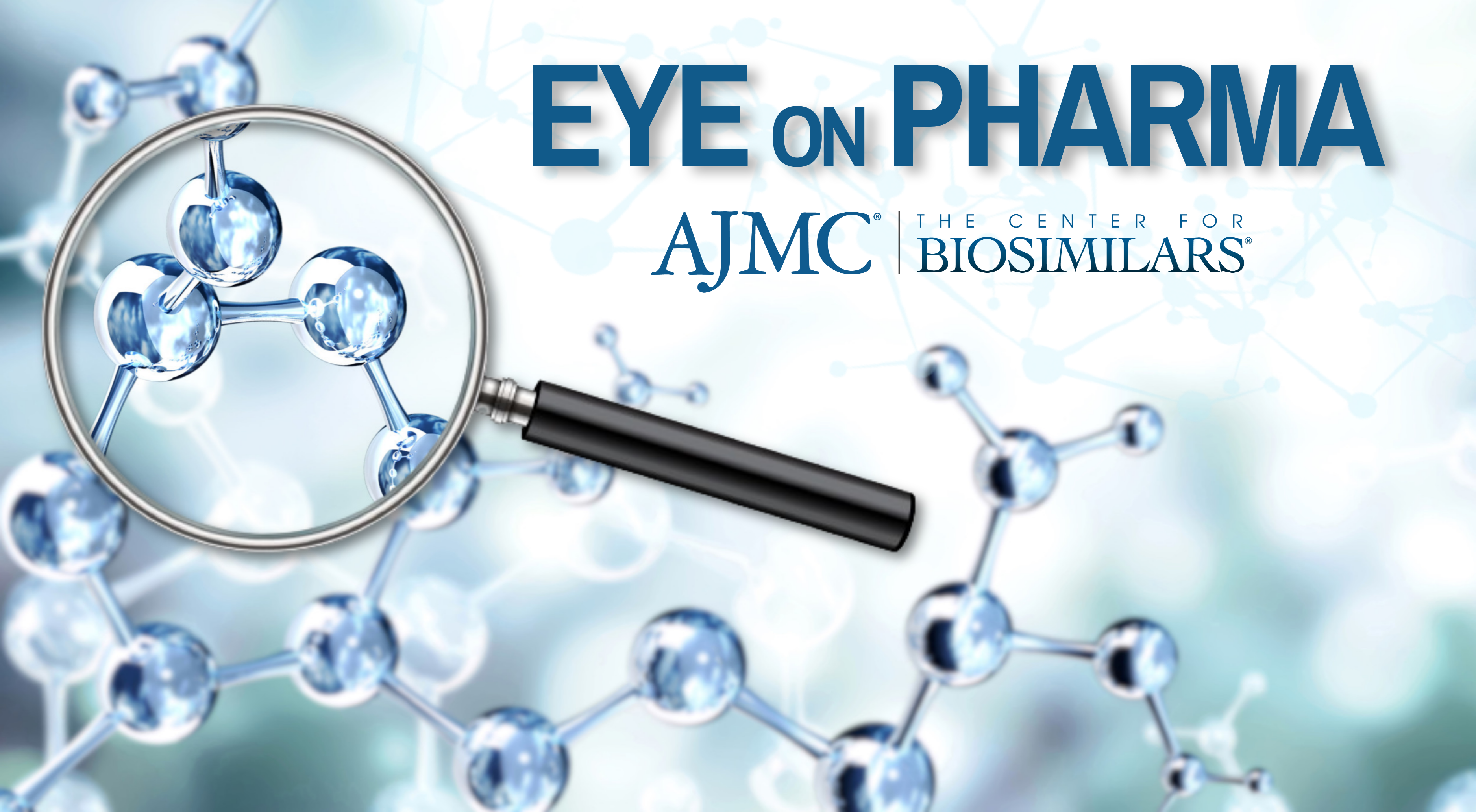- Bone Health
- Immunology
- Hematology
- Respiratory
- Dermatology
- Diabetes
- Gastroenterology
- Neurology
- Oncology
- Ophthalmology
- Rare Disease
- Rheumatology
Eye on Pharma: Teva, Formycon, Celltrion Biosimilar Updates in Global Markets
Three players in the biosimilar space have already sparked hope for the new year, with each having big business or regulatory announcements regarding new biosimilar products in Europe and Canada.
Three players in the biosimilar space have already sparked hope for the new year, each having big business or regulatory announcements regarding new biosimilar products in Europe and Canada.

Multiple Approvals for Teva, Formycon Aflibercept
The European Commission granted marketing authorization a new aflibercept biosimilar that will be marketed as Ahzantive and Baiama (FYB203) across major parts of Europe.1
The biosimilar was developed by Formycon and will be commercialized by Teva Pharmaceuticals as part of a January 2025 licensing agreement for semi-exclusive commercialization of FYB203, which concerned major European markets and Israel.2
FYB203 was approved in the US in June 2024, but market entry will be delayed until potentially 2032 due to ongoing patent litigation.3 Aflibercept products, such as the reference agent Eylea, are used to treat several retinal conditions, including neovascular age-related macular degeneration, diabetic retinal occlusion, and diabetic macular edema.
“FYB203 significantly expands therapeutic options for patients with severe retinal diseases," Stefan Glombitza, CEO of Formycon, commented in a statement.1 "With Ahzantive and Baiama, we are improving access to high-quality and affordable therapies that contribute sustainably to enhancing patients’ quality of life.”
Global Approvals for Otulfi
Formycon and Frensenius Kabi announced regulatory approvals for their ustekinumab biosimilar (Otulfi) in the UK and Canada.4,5 The biosimilar was approved for the treatment of Crohn disease, ulcerative colitis, plaque psoriasis, and psoriatic arthritis.
The biosimilar was previously granted marketing authorization in the European Union in September 2024.
“For millions of people around the world, chronic inflammatory diseases have a massive impact on the quality of life. There is a clear demand to help those patients, who are suffering severely from the symptoms of their disease. Each approval is important and brings us a step ahead in our mission to offer a highly effective and cost-efficient treatment option to as many patients as possible across multiple geographies,” said Glombitza about the European approval.4
Ustekinumab A human monoclonal antibody that targets the cytokines IL-12 and IL-23, which are key regulators of inflammatory and immune responses.
Celltrion French Biosimilar Launch
Celltrion has completed the European rollout of Steqeyma, its ustekinumab biosimilar treatment for autoimmune diseases, with launches in France, Germany, Spain, the UK, and Italy, according to Korea Biomedical Review. The company is set to expand Steqeyma’s availability to additional European countries later this year while preparing for its US debut.
To capture a share of the $20.4 billion global ustekinumab market (IQVIA, 2023), Celltrion has employed tailored strategies, including participation in government and hospital tenders.
Steqeyma was originally launched in the UK in December 2024 following the invalidation of ustekinumab’s ulcerative colitis patent, enabling its use for all approved indications like plaque psoriasis, psoriatic arthritis, Crohn disease, and ulcerative colitis.
In France, Celltrion plans to begin observational studies next month while addressing physicians’ needs through targeted marketing strategies. The European ustekinumab market was valued at $3.1 billion in 2023, and Celltrion aims to solidify its position with Steqeyma, which inhibits inflammation-related IL-12 and IL-23.
References
1. Formycon receives EU approval for FYB203 (aflibercept), a biosimilar to Eylea, under the brand names Ahzantive and Baiama. Formycon. News release. January 20, 2025. Accessed January 24, 2025. https://www.formycon.com/en/blog/press-release/formycon-receives-eu-approval-for-fyb203-aflibercept-a-biosimilar-to-eylea-under-the-brand-names-ahzantive-and-baiama/
2. Teva announces collaboration to commercialize Formycon’s biosimilar candidate to Eylea (aflibercept) in major parts of Europe and in Israel. Teva Pharmaceuticals. News release. January 13, 2024. Accessed January 24, 2025. https://www.globenewswire.com/news-release/2025/01/13/3008103/0/en/Teva-Announces-Collaboration-to-Commercialize-Formycon-s-Biosimilar-Candidate-to-Eylea-aflibercept-in-major-parts-of-Europe-and-in-Israel.html
3. Jeremias S. Eye on Pharma: aflibercept legal drama; PBM, Humira biosimilars; denosumab regulatory review. The Center for Biosimilars®. October 15, 2024. Accessed January 24, 2025. https://www.centerforbiosimilars.com/view/eye-on-pharma-aflibercept-legal-drama-pbm-humira-biosimilars-denosumab-regulatory-review
4. Formycon and Fresenius Kabi announce MHRA approval for FYB202/Otulfi (ustekinumab), a biosimilar to Stelara. Formycon. News release. January 15, 2024. Accessed January 24, 2025. https://www.formycon.com/en/blog/press-release/formycon-and-fresenius-kabi-announce-mhra-approval-for-fyb202-otulfi-ustekinumab-a-biosimilar-to-stelara/
5. Formycon and Fresenius Kabi Canada receive Health Canada’s approval for FYB202/Otulfi (ustekinumab), a biosimilar to Stelara. Formycon. News release. January 8, 2024. Accessed January 24, 2025. https://www.formycon.com/en/blog/press-release/formycon-and-fresenius-kabi-canada-receive-health-canadas-approval-for-fyb202-otulfi-ustekinumab-a-biosimilar-to-stelara/
6. K J-h, Celltrion launches Stelara biosimilar in France, completing rollout in Europe ahead of US debut. Korea Biomedical Review. January 23, 2025. Accessed January 24, 2025. https://www.koreabiomed.com/news/articleView.html?idxno=26419
Newsletter
Where clinical, regulatory, and economic perspectives converge—sign up for Center for Biosimilars® emails to get expert insights on emerging treatment paradigms, biosimilar policy, and real-world outcomes that shape patient care.
